7 Best Data Labeling and Annotation Service Providers in Retail Industry 2025
In 2025, top data labeling and annotation service providers for the retail industry include Labellerr, iMerit, Appen, CloudFactory, Anolytics, and V7 Labs. These platforms support tasks like product recognition, sentiment analysis, visual search, fraud detection, and inventory management.
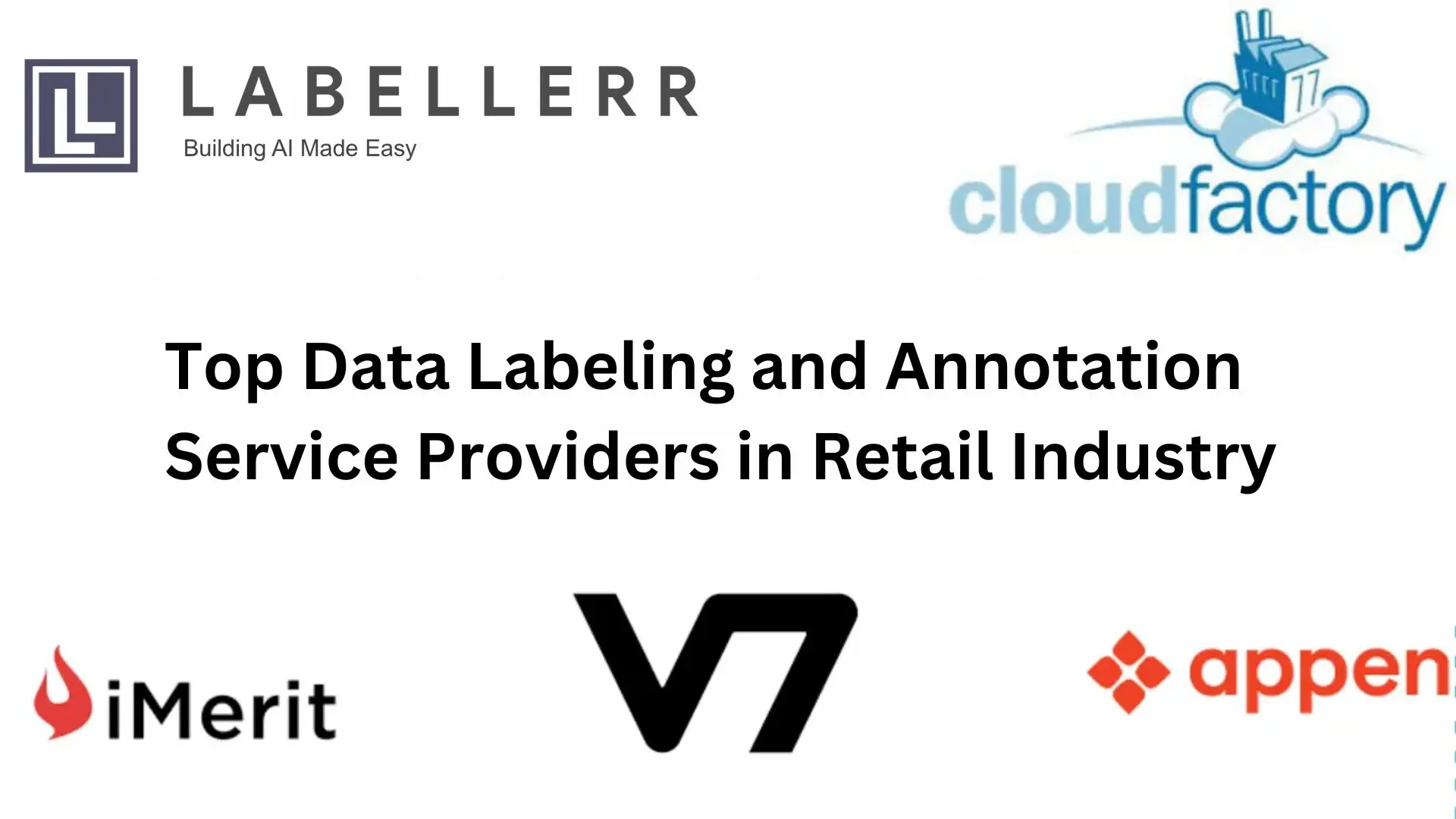
In the rapidly evolving retail industry, the integration of artificial intelligence (AI) and machine learning (ML) is transforming traditional business practices.
A critical component of these intelligent systems is high-quality, accurately labeled data. This is where the expertise of a dedicated data annotation service provider becomes essential.
Data labeling involves assigning meaningful labels to raw data, making it understandable for machine learning algorithms.
For the retail sector, the applications of these services are vast and varied—ranging from image and video recognition for inventory management to sentiment analysis of customer reviews, and personalized marketing strategies based on behavioral data.
Selecting the right data annotation service provider is a crucial step for retailers who want to get the most out of AI and machine learning. The best data annotation companies help you use your data better, so your AI works smarter and faster. Labellerr is trusted by top retail brands for secure, fast, and affordable data annotation.
In this blog, we will explore the top data annotation tools that offer features like intuitive interfaces, support for various data types, integration capabilities with other systems, and options for both manual and automated labeling and the specific benefits they bring to retail businesses.
Table of Contents
- Key Applications in the Retail Industry
- Labellerr
- iMerit
- Appen
- CogioTech
- CloudFactory
- Anolytics
- V7 Labs
- Conclusion
- Frequently Asked Questions
Key Applications in the Retail Industry
1. Product Recognition and Categorization
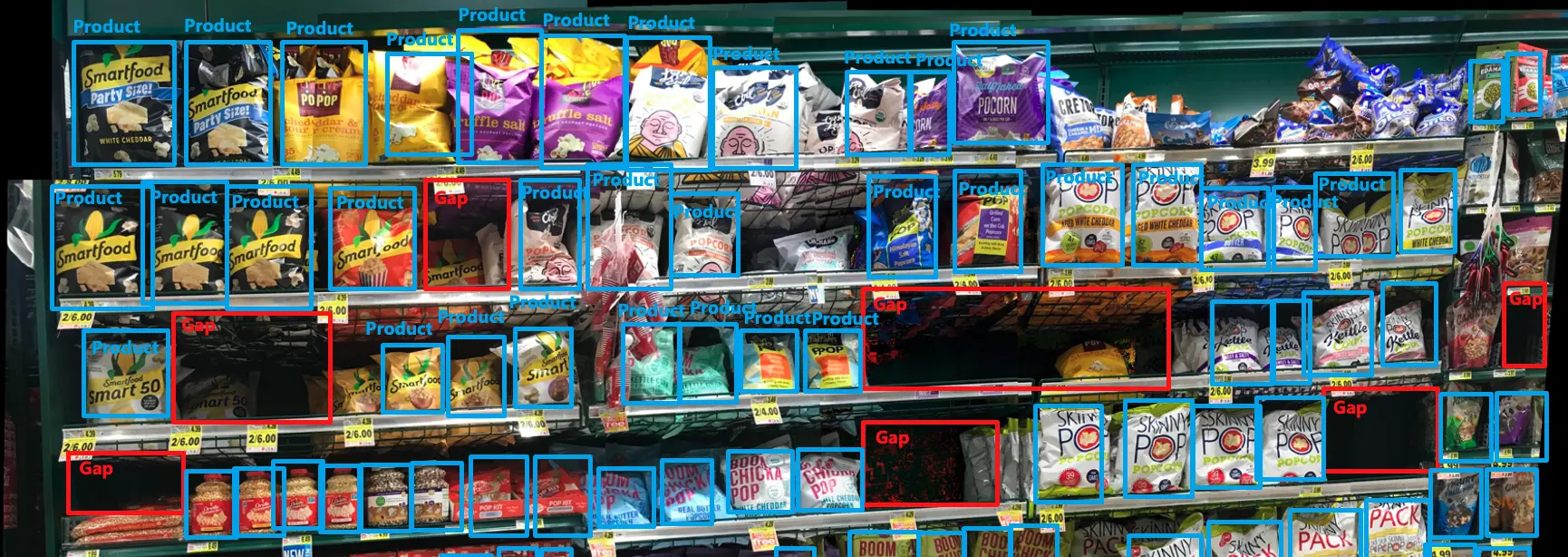
Product recognition and categorization involve annotating images to identify and classify products accurately.
This process enables automated inventory management and streamlined product listings, ensuring that products are correctly placed in relevant categories. Machine learning models trained on annotated datasets can recognize and categorize products even when new images or variations are introduced.
This capability is crucial for e-commerce platforms, where efficient and accurate product categorization enhances the user experience, improves search functionality, and boosts sales by making products easier to find.
2. Customer Sentiment Analysis

Customer sentiment analysis uses annotated reviews and feedback to train models that gauge customer emotions and opinions.
By labeling data with sentiments such as positive, negative, or neutral, businesses can gain insights into customer satisfaction and areas for improvement. This analysis helps in understanding how customers feel about products, services, and the overall brand experience.
Retailers can then tailor their strategies to address customer concerns, enhance product offerings, and improve customer service, leading to increased loyalty and satisfaction.
3. Visual Search and Recommendations

Visual search and recommendation systems rely on annotated product images to improve search capabilities and personalize recommendations.
By tagging images with relevant attributes, machine learning models can suggest visually similar items, enhancing the shopping experience.
For example, a customer can upload a photo of an item they like, and the system will recommend similar products available in the store. This technology not only makes it easier for customers to find what they are looking for but also increases cross-selling opportunities and boosts sales by presenting customers with relevant product suggestions.
4. Fraud Detection

Fraud detection in retail involves annotating transaction data to identify and mitigate fraudulent activities.
By labeling data with fraud indicators, machine learning models can learn to recognize patterns and anomalies that suggest fraudulent behavior. This capability is essential for protecting businesses and customers from financial losses and maintaining trust.
Advanced fraud detection systems can monitor transactions in real time, flagging suspicious activities for further investigation and enabling quick responses to potential threats, thereby enhancing the overall security of retail operations.
5. Inventory Management
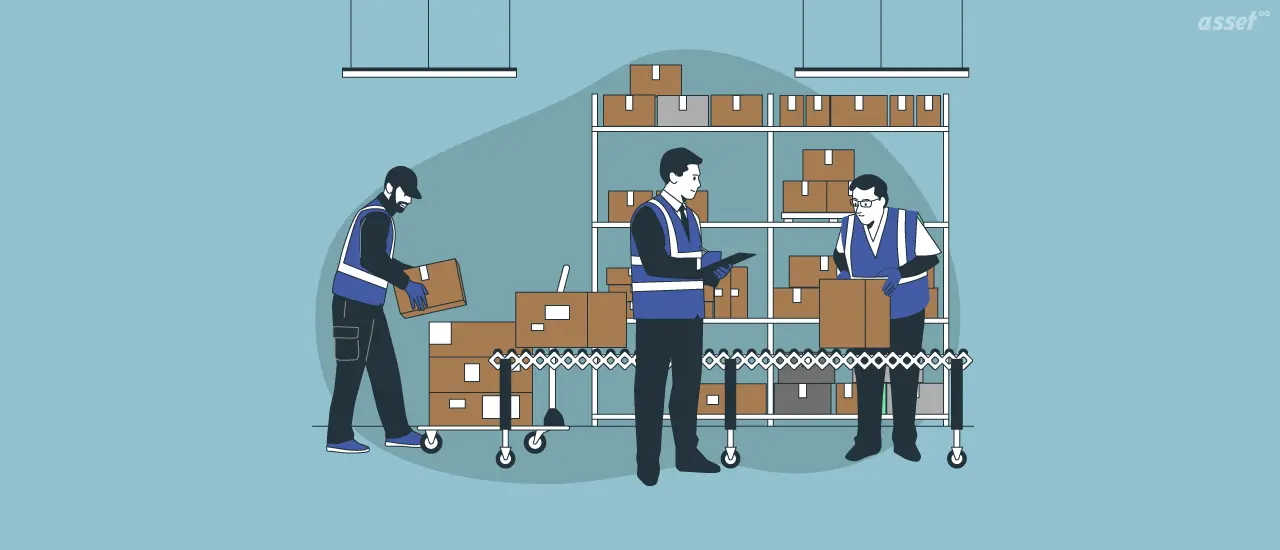
Inventory management benefits significantly from annotated data used to improve demand forecasting models.
By labeling inventory data with details such as product type, sales velocity, and seasonal trends, machine learning models can predict future inventory needs more accurately.
This ensures that retailers maintain optimal stock levels, reducing the risk of overstocking or stockouts.
Effective inventory management leads to better resource allocation, minimized storage costs, and improved customer satisfaction by ensuring that popular products are always available.
Top Data Labeling and Annotation Service Provider for Retail Industry
1) Labellerr

Labellerr stands out as a powerful tool for data labeling and annotation tasks in the retail industry. Here's a breakdown of its key features, user reviews, and pricing:
Pros:
Feature-rich Segmentation: Perform faster segmentation with pixel perfection. Drag polygon and auto-bordering features prevent overlapping adjacent objects.
Auto-labeling: Accelerate use cases with semantic segmentation using features like SAM and active learning.
Professional Annotation Team: Handle large data volumes with fast turnaround times.
Custom SLA: Starting from 24 hours for batch completion.
24/7 Tool Support: Available for the Enterprise Plan.
Robust QA Process: Set up QA processes that include agreement between annotators, comparison based on ground truth and IOU metrics, model-assisted QA, generative AI-powered QA, and sample visual quality assurance.
Dedicated Account Manager: Manage daily/weekly output efficiently.
Data Privacy and Security Compliance: Comply with HIPAA and GDPR regulations.
Multi-tier Pricing: options based on quality measurement. The default QC process includes 1 round of annotation and 1 round of QC, customizable to match the expected output, timeline, and budget.
Cons:
Limited Format Support: This does not currently support point cloud and 3D data formats.
Pricing:
Pro Plan: Starts at $499 per month for 10-user access with 50,000 data credits included. Additional data credits can be purchased at $0.01 USD per data credit, and extra users can be subscribed to at $29 USD per user.
Enterprise Plan: Offers professional services, including tool customization and ML consultancy apart from custom data, workspace, and other limitations.
2) iMerit
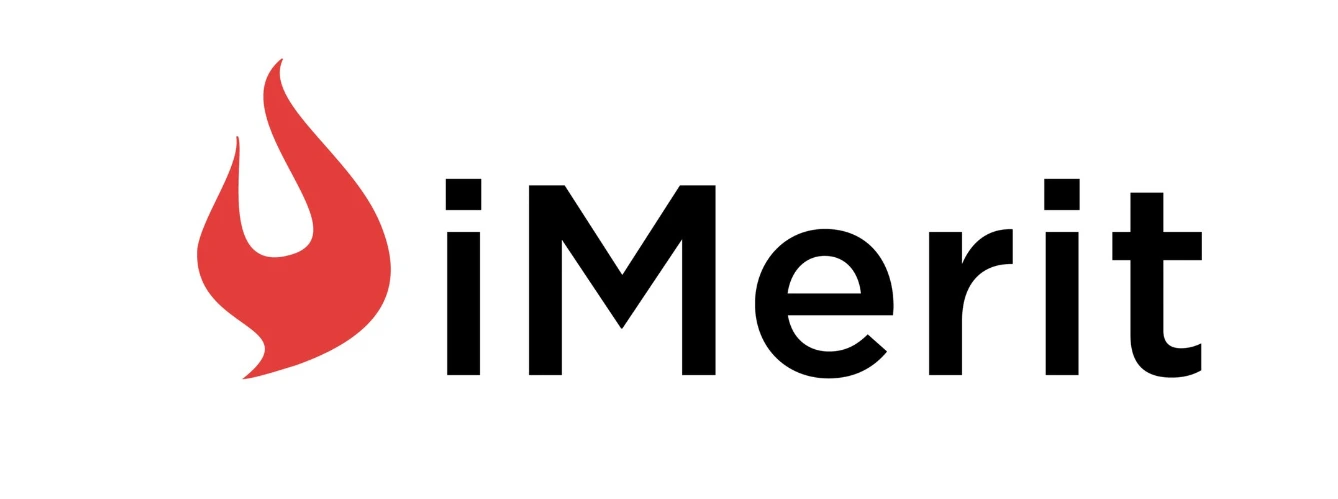
iMerit is a leading data annotation and labeling service provider that specializes in delivering high-quality, human-annotated data for AI and machine learning applications.
With a strong focus on precision and scalability, iMerit serves a variety of industries, including retail, where their services enhance customer insights and operational efficiencies.
Features:
Expert Workforce: iMerit employs a skilled workforce trained in various annotation tasks, ensuring high accuracy and consistency in data labeling.
Scalability: Capable of handling projects of all sizes, iMerit offers scalable solutions to meet the growing data needs of retail businesses.
Quality Assurance: They implement rigorous quality control processes, including multiple rounds of validation and review, to maintain data integrity.
Custom Solutions: iMerit provides tailored annotation services that cater to specific retail requirements, such as product categorization, sentiment analysis, and visual data labeling.
3) Appen
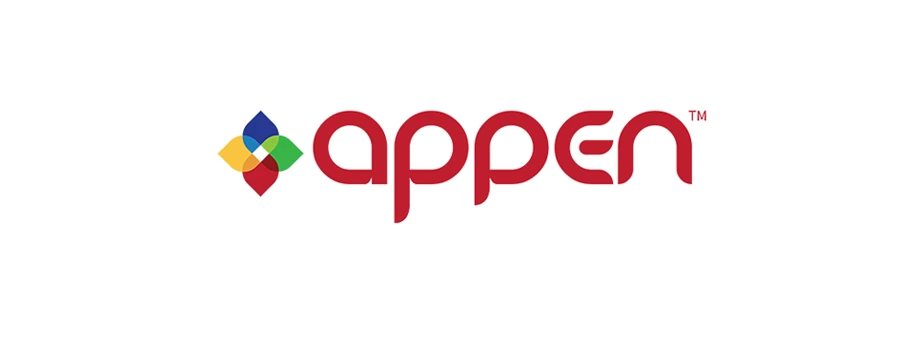
Appen is a global leader in data annotation and labeling services, offering comprehensive solutions that support the development of advanced AI and ML models. With a robust platform and a vast network of contributors, Appen is well-positioned to serve the retail industry by enhancing data-driven decision-making.
Features:
Global Contributor Network: Appen leverages a diverse, worldwide community of data annotators to ensure cultural and contextual relevance in data labeling.
Advanced Platform: Their state-of-the-art platform supports a wide range of annotation tasks, from text and image to audio and video data.
Flexibility and Speed: Appen offers flexible solutions with rapid turnaround times, helping retail businesses stay agile and responsive to market demands.
Comprehensive Quality Management: Their quality management system includes automated checks and human review processes to deliver reliable and accurate data.
4) Cogito Tech
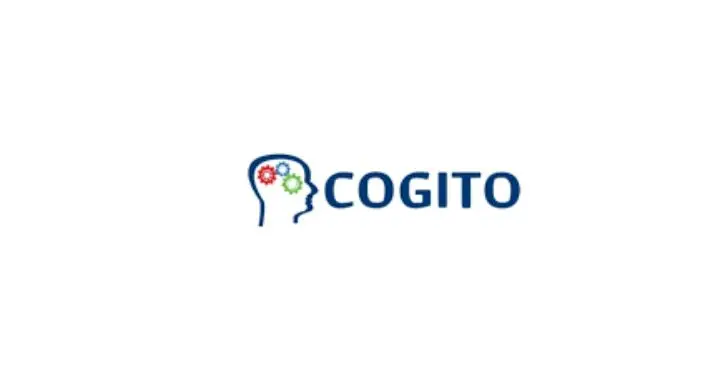
Cogito Tech is a prominent data annotation service provider known for its high-quality, cost-effective solutions. Specializing in the retail sector, Cogito Tech offers a range of annotation services designed to improve AI model performance and drive better business outcomes.
Features:
Expert Annotation Team: Cogito Tech boasts a team of experienced annotators skilled in handling complex data labeling tasks, ensuring precise and reliable annotations.
Cost-Effective Solutions: They offer competitive pricing models without compromising on the quality of service, making it an attractive option for retail businesses of all sizes.
Versatile Services: Cogito Tech provides a variety of annotation services, including image and video labeling, text annotation, and sentiment analysis, catering to diverse retail needs.
Robust Quality Control: Their multi-tier quality assurance process ensures that the annotated data meets the highest standards of accuracy and consistency.
5) CloudFactory
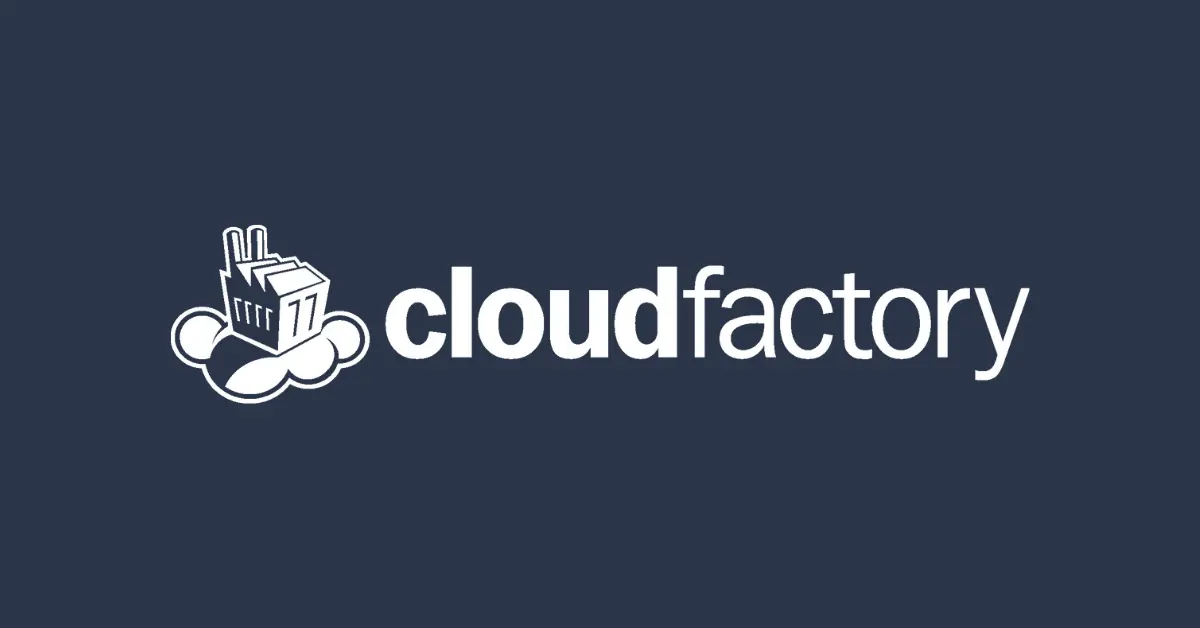
CloudFactory is a renowned data annotation service provider that blends human expertise with cutting-edge technology to deliver high-quality data for AI and machine learning applications. With a strong focus on ethical practices and workforce development, CloudFactory serves various industries, including retail, by enabling efficient data processing and analysis.
Features:
Hybrid Workforce: Combines skilled human annotators with AI tools to enhance accuracy and efficiency in data labeling.
Scalability: Offers scalable solutions that can adapt to the changing needs of retail businesses, ensuring timely project completion.
Ethical Practices: Emphasizes fair labor practices and social impact, providing job opportunities and skill development to workers in emerging markets.
Flexible Integration: Provides easy integration with existing workflows and tools, facilitating seamless data processing and utilization.
6) Anolytics
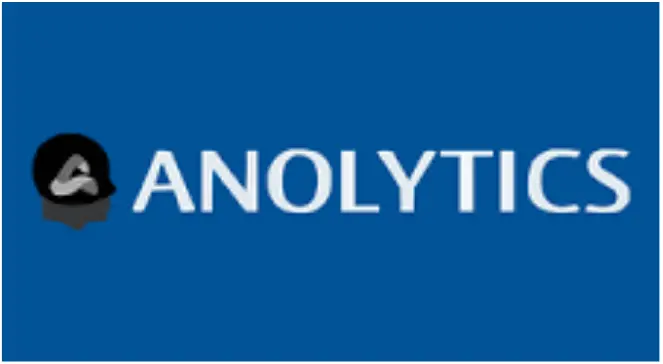
Anolytics is a specialized data annotation service provider focused on delivering high-quality, customized solutions for AI and machine learning projects. Catering to the retail industry, Anolytics excels in creating detailed and accurate data annotations that enhance model performance and business insights.
Features:
Customized Solutions: Offers tailored annotation services to meet specific retail needs, such as product recognition, customer sentiment analysis, and inventory management.
Expert Annotators: Employs a team of trained annotators with expertise in various domains, ensuring precision and reliability in data labeling.
Advanced Tools: Utilizes state-of-the-art annotation tools and techniques to improve the accuracy and efficiency of the data labeling process.
7) V7 Labs

V7 Labs is an innovative data annotation and labeling service provider known for its advanced platform that integrates AI and human expertise. V7 Labs specializes in creating high-quality training data for complex machine learning models, making it a valuable partner for the retail industry.
Features
AI-Powered Platform: Leverages AI-assisted annotation tools to enhance speed and accuracy, reducing the time required for data preparation.
Versatile Services: Supports a wide range of annotation tasks, including image and video labeling, text annotation, and more, catering to diverse retail applications.
Collaboration Tools: Provides robust collaboration features that allow multiple annotators and reviewers to work together seamlessly, improving efficiency and output quality.
Continuous Improvement: Focuses on iterative improvements and feedback loops to refine the data annotation process, ensuring ongoing enhancement of data quality.
What Makes Labellerr Stand Out Among Data Annotation Companies?
- All-in-one SaaS Platform: Manage all your data annotation projects in one place.
- Fast Turnaround: Get labeled data in as little as 24 hours.
- Smart Auto-Labeling: Save time and reduce costs with automation.
- Custom Workflows: Tailor the process to your needs.
- Enterprise Security: HIPAA and GDPR compliant.
- Transparent Pricing: No hidden costs. Start with our Pro Plan or scale as needed.
- Dedicated Support: Your account manager is always ready to help.
Conclusion
As the retail industry continues to embrace artificial intelligence and machine learning, the importance of high-quality data labeling and annotation services cannot be overstated.
Accurate and detailed data annotations are the backbone of effective AI models, enabling retailers to optimize operations, enhance customer experiences, and drive innovation.
Leading service providers like Labellerr, iMerit, and Appen offer specialized solutions tailored to the unique needs of the retail sector. These companies provide a combination of expert human annotators and advanced technologies to deliver precise, reliable, and scalable data annotation services.
Their commitment to quality, customization, and ethical practices ensures that retail businesses can confidently leverage AI to gain actionable insights and maintain a competitive edge.
Ready to Boost Your Retail AI?
Labellerr is your partner for fast, secure, and affordable data annotation. Start with our Pro Plan for $499/month, including 50,000 data credits. Book a demo today and see how easy it is to get started!
Frequently Asked Questions
1. What is data labeling and annotation, and why is it important for the retail industry?
Data labeling involves assigning meaningful labels to raw data, while annotation includes tagging and categorizing data with detailed information. These processes are crucial for training machine learning models to recognize patterns, make predictions, and enhance decision-making. In retail, high-quality labeled and annotated data helps improve inventory management, personalized marketing strategies, and enhance customer service.
2. How do data labeling and annotation services benefit retail businesses?
Data labeling and annotation services provide several benefits to retail businesses, including:
- Enhanced Customer Insights: Improved analysis of customer behavior and preferences.
- Efficient Inventory Management: Accurate tracking and categorization of products.
- Personalized Marketing: Development of targeted marketing campaigns based on customer data.
- Operational Efficiency: Automation and optimization of various retail processes.
3. What factors should retail businesses consider when choosing a data labeling and annotation service provider?
When selecting a service provider, retail businesses should consider:
- Accuracy and Quality: The provider's track record for delivering high-quality, accurate annotations.
- Scalability: Ability to handle projects of varying sizes and adapt to growing data needs.
- Customization: Availability of tailored solutions to meet specific retail requirements.
- Cost-Effectiveness: Competitive pricing without compromising on quality.
- Security and Compliance: Ensuring data privacy and compliance with relevant regulations.
4. What makes Labellerr different from other data annotation companies?
Labellerr offers a complete SaaS solution with automation and strong security. Our platform is easy to use and scales with your needs.

Simplify Your Data Annotation Workflow With Proven Strategies
.png)


